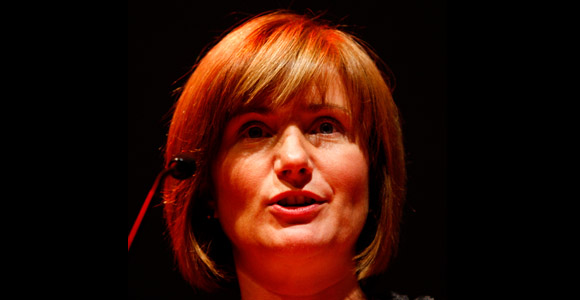BOA’s Row with LOCOG Disrespectful to Paralympic Counterparts – Pippa Collett
May 5, 2011
According to the website of the British Olympic Association (BOA), its mission is to transform British lives through the power of the Olympic values of excellence, respect and friendship, and the success of Team GB.
Whilst there is no doubt about the BOA’s pursuit of the former, the lengthy dispute with the London Organising Committee for the Olympic Games (LOCOG) was not only distinctly unfriendly but also disrespectful to their Paralympic colleagues.
When London won the right to host the Olympic and Paralympic Games in 2005 it was agreed that the BOA would receive 20% of any surplus after the Games in return for signing over their rights to the Olympic marks and assets to LOCOG. However, during their dispute, it appeared that the two organisations differed over the definition of ‘after the Games’ in that the BOA took this to mean ‘after the Olympics’. LOCOG’s broader perspective is that the Games is not over until the Paralympic flame is extinguished.
The BOA’s position is rooted in the organisation’s structure. It receives no funds from the state lottery or from Government and its only revenues come from fundraising and events. In years not hosting National Organising Committee (NOC), some of the BOA’s most valuable assets are its rights to market the Olympic marks to commercial partners.
However, as part of the bid, the BOA signed over those Olympic rights to LOCOG but expected a “significant financial legacy” for itself as well as new sports facilities for London following the Games. The BOA intended to take their case to the Court of Arbitration for Sport (CAS) with the belief that including the costs of the Paralympic Games into the equation would effectively reduce the surplus, and therefore its 20%, to zero.
LOCOG has to balance its books and deliver both Games on time and within the defined £2 billion budget. None of this money is coming from the state either: the budget is based on receiving funds from the IOC, sponsorship and ticket sales. LOCOG is a non-profit organisation and therefore any apparent surplus is more likely to get allocated to additional Games-enhancing programmes than be held back for post-Games payouts.
Both parties appealed to the International Olympic Committee (IOC) which ruled in favour of LOCOG. Since 2001 the IOC has run a joint bidding process where any aspiring Olympic Games host city has to commit to running the Paralypmic Games in tandem. Its view is that the two are therefore completely linked and that any surplus should be calculated after the costs of both Games have been taken into account. Interestingly, the IOC is also meant to receive 20% of any surplus, in line with the BOA’s argument, which made the judgement all the more credible.
After rejecting the IOC’s decision, the BOA initiated a case with the CAS which was later suspended in order to return to the table with LOCOG to see if an agreement could be reached without the need for further legal bills.
Despite a settlement having been reached, strongly in the favour of LOCOG, it is still unclear as to why the BOA chose this period to highlight the issue, and in turn cause damage to its fundraising efforts.
Personally, I only see the recent dispute which has since been relinquished by the BOA as a symptom of a more important problem: true integration of the disabled into society.
Whilst the Paralympic movement believes its Games would be overshadowed by the able-bodied event, I would prefer to see the two running concurrently in order to ensure a much greater exposure of Paralympic sports to a wider audience. The incredible stories of Paralympic athletes would contribute significantly to the wellspring of Olympic inspiration.
Most importantly, I believe this solution would act as a catalyst for society in increasing acceptance of those managing physical challenges as valuable contributors rather than embarrassments best ignored.
Pippa Collett: Since gaining and MBA from Cranfield, Pippa Collett has become a leading sponsorship practitioner with an extensive client-side career at Shell, American Express and Rank Organisation. Her global sponsorship experience covers the full spectrum from Ferrari in Formula One and the Olympics to cultural projects including The Olivier Awards and The Unilever Series. She joined Sponsorship Consulting in 2006 to work with blue-chip clients such as Siemens, Standard Chartered Bank and Cisco.
As Vice-Chair of The European Sponsorship Association, Pippa has led on key aspects of the developing sponsorship agenda including authorship of ESA’s Sponsorship Assessment & Evaluation Guidelines and introducing the concept of Continuing Professional Development.
{jCOmments on}


